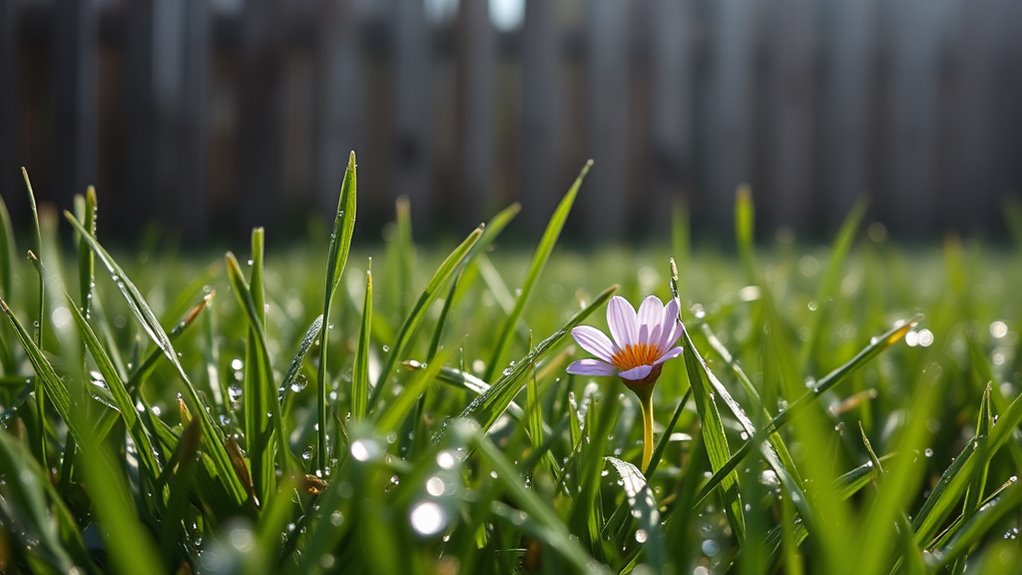Why I Schedule Time for Doing Nothing Now
Have you ever felt overwhelmed by constant busyness? Scheduling time for doing nothing can feel counterintuitive, yet it’s a powerful tool for clarity and peace. By embracing intentional downtime, you can recharge your mind and spark creativity. It’s about more than just rest; it’s a way to cultivate mindfulness and gain fresh perspectives. But how do you overcome the guilt often tied to taking a break? Let’s explore this transformative practice together.
Key Takeaways
- Scheduling time for doing nothing enhances clarity and fosters creativity, leading to fresh ideas and improved problem-solving abilities.
- Taking breaks recharges my mind, boosts focus, and reduces burnout, helping me maintain energy throughout the day.
- Embracing stillness allows me to connect with my thoughts and feelings, empowering reflection and promoting overall well-being.
- Mindful downtime creates space to observe my surroundings, enhancing awareness and reducing stress in everyday life.
- Overcoming guilt associated with rest is essential; it fuels my creativity, improves mental health, and positively impacts my productivity.
The Benefits of Embracing Stillness
Have you ever considered how embracing stillness can transform your life?
When you integrate stillness planning into your routine, you create space for clarity and peace.
This quiet time allows you to step back from the chaos, helping you connect with your thoughts and feelings.
You’ll find that stillness fosters creativity, enabling fresh ideas to emerge.
Additionally, it can reduce stress, promoting a sense of calm that benefits your mental health.
By prioritizing moments of stillness, you empower yourself to reflect, recharge, and ultimately enhance your overall well-being.
Incorporating stillness planning into your busy schedule can lead to greater mental clarity and overall wellness.
Embrace this practice, and you might discover a more balanced, fulfilling life.
How Scheduling Downtime Boosts Productivity
How often do you find yourself racing through tasks, convinced that constant activity equals greater productivity?
You might be surprised to learn that scheduling downtime can actually enhance your efficiency.
Here’s how:
- Recharges Your Mind: Taking breaks allows your brain to reset, improving focus.
- Fosters Creativity: Downtime can spark new ideas that a busy mind overlooks.
- Reduces Burnout: Regular breaks prevent exhaustion, keeping your energy levels high.
- Enhances Decision-Making: Stepping back lets you approach problems with fresh perspective.
Incorporating scheduled downtime into your routine can lead to a more productive, balanced life. Additionally, granting yourself permission to rest can significantly contribute to your overall well-being.
Cultivating Mindfulness Through Intentional Breaks
Embracing intentional breaks can transform your approach to mindfulness, allowing you to reconnect with the present moment.
When you take a step back, even for a few minutes, you create space to observe your thoughts and feelings.
Use this time to breathe deeply or simply be aware of your surroundings.
Notice the textures, sounds, and scents around you.
By interrupting the constant flow of tasks, you cultivate a sense of presence that’s often lost in daily hustle.
These moments of stillness help ground you, making it easier to navigate stress and enhance your overall well-being.
Prioritize these breaks for clarity, as the mindful pause ritual can serve as a powerful tool to help you reconnect with yourself.
Creative Insights Gained From Doing Nothing
What if the key to unlocking your next big idea lies in moments of stillness and idleness?
By scheduling time for doing nothing, you open the door to unexpected creativity.
Here are four insights you might gain:
- Enhanced Problem-Solving: Your mind connects ideas in unique ways when it’s free to wander.
- Fresh Perspectives: Stepping back allows you to see challenges from new angles.
- Reduced Stress: Embracing idleness helps clear mental clutter, fostering a calm mindset.
- Increased Intuition: Listening to your inner voice can reveal hidden solutions during quiet moments.
Incorporating a stillness practice can unveil hidden beauty and profound insights in your daily experiences.
Embrace the power of nothingness.
Overcoming the Guilt of Taking Time Off
Finding creativity in stillness can be easier said than done, especially when guilt creeps in during moments of rest.
You might worry about falling behind or not being productive enough, but remember: taking time off isn’t laziness; it’s essential for growth.
Challenge those guilt-ridden thoughts by recognizing that rest fuels your creativity and enhances your focus. Embracing guilt-free rest can significantly improve your overall mental health and productivity.
Schedule those breaks intentionally, and allow yourself to embrace the downtime.
Reflect on how it positively impacts your work and mental well-being.





